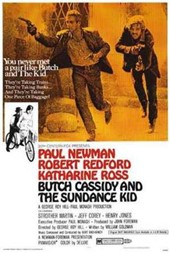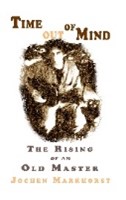by Jochen Markhorst
The four-part article series on “Marchin’ To The City”, an outtake from the Time Out Of Mind sessions, is a chapter from Jochen’s recent book “Time Out Of Mind – The Rising Of An Old Master”, available via Amazon.
II Loneliness is just a waste of time
 The freewheelin’ poet finds no further inspiration in the church, lets his protagonist rise from his wooden chair and opens the door to the outside world. We were not, as the gospel-like opening and languid blues accompaniment suggests, in a stuffy little church somewhere in Mississippi or Georgia on a sweltering summer’s day;
The freewheelin’ poet finds no further inspiration in the church, lets his protagonist rise from his wooden chair and opens the door to the outside world. We were not, as the gospel-like opening and languid blues accompaniment suggests, in a stuffy little church somewhere in Mississippi or Georgia on a sweltering summer’s day;
Snowflakes are falling around my head Lord have mercy, it feel heavy like lead I been hit too hard, seen too much Nothing can heal me now but your touch
… but we are a lot farther north, and it’s a bleak winter’s day. Or perhaps a fairytale winter day, with snowflakes whirling picturesquely. The songwriter, meanwhile, seems to have made an inimitable associative leap to Butch Cassidy And The Sundance Kid.
It is a persistent story that has been repeatedly denied by Burt Bacharach himself, but on 5 March 2021, B.J. Thomas is quite resolute, in conversation with Bart Herbison, in another great episode of Tennessean‘s wonderful series “Story Behind The Song”:
“Burt had written the melody for Bob Dylan. I think he said he didn’t do that but there was a time where he did pitch it to Bob Dylan. He was the first to turn it down. It seemed like a Dylan song, but maybe not.”
… and B.J. Thomas is a well-informed source, of course. Ray Stevens also turns the song down, preferring to record “Sunday Morning Coming Down”, so in the end B.J. is the lucky Wilbury who gets to have “Raindrops Keep Fallin’ On My Head”.
This must have played out in the summer of 1969, shortly after Dylan recorded Nashville Skyline and “Lay Lady Lay”; Bacharach’s idea of giving the song to Dylan would not have been that crazy – and it is an attractive fantasy, the fantasy of what Dylan would have done with “Raindrops Keep Fallin’ On My Head” (aside from imagining how the confrontation with the notoriously perfectionist Bacharach would have gone down). It is, frankly, rather unlikely that Dylan could have done better than the untouchable monument built by Bacharach and B.J. Thomas. On the other hand: the cover by the Manic Street Preachers from Wales in 1995 demonstrates an unexpectedly tragic, gritty depth to the classic – a dimension that a Time Out Of Mind Dylan will surely enjoy.
Anyway, thirty years later, the song seems to be haunting Dylan’s mind again and going through the Dylan-o-matic;
“I’ll be playing Bob Nolan’s Tumbling Tumbleweeds, for instance, in my head constantly — while I’m driving a car or talking to a person or sitting around or whatever. People will think they are talking to me and I’m talking back, but I’m not. I’m listening to the song in my head. At a certain point, some of the words will change and I’ll start writing a song.”
… as Dylan explains to Robert Hilburn in 2003. But presumably, Dylan also considers the word change from “raindrops” to “snowflakes” not radical enough. And he’s right; “snowflakes are falling ’round my head” still keeps evoking Paul Newman and his antics on the bicycle. No, both this line and the subsequent filler “Lord have mercy, it feels heavy like lead” (Ray Charles’ “Lonely Avenue” buzzes around as well, apparently) will not survive, and have already been scrapped in #2 of “Marchin’ To The City”.
Which does not apply to the second half: “I been hit too hard, seen too much / Nothing can heal me now but your touch” does seem to please. The words are even promoted unchanged to the opening verse of “‘Til I Fell In Love With You”. Conceivable; apart from the perfect TOOM colour and stylistic beauty, the words have an evangelical connotation that surely appeals to Dylan. Something like “Somebody Touched Me” by The Stanley Brothers, which will also be on Dylan’s set list in the following years. Or Elvis’ “He Touched Me” of course, which Dylan values at least as highly, and whose tenor is the same as these two lines from Dylan’s song;
Shackled by a heavy burden 'Neath a load of guilt and shame Then the hand of Jesus touched me And now I am no longer the same
…first the misery of the man “who has seen too much”, then the healing power of a touch, as it should be.
The Dylan-o-matic, the inner engine of the songwriter who writes his verses one after the other while he is in The Zone, is now starting to come up to speed. The third verse of “Marchin’ In The City” approaches the familiar poetic perfection;
Loneliness got a mind of its own The more people around, the more you feel alone I'm chained to the earth like a silent slave Trying to break free out of death's dark cave
“Loneliness” is, of course, a motif that perfectly lends itself to marble one-liners. It is unambiguous, pitiful and universally recognisable. “Loneliness is the cloak you wear,” as the Walker Brothers unforgettably open their “The Sun Ain’t Gonna Shine Anymore”. Solomon Burke snarling that “loneliness is just a waste of time” (“Cry To Me”), Andy Williams looking for “a place where there’s just loneliness, where dim lights bring forgetfulness” and finding it on “Lonely Street”… all brilliant, unforgettable one-liners that would be utterly insignificant if “loneliness” were replaced by, say, “happiness”. After all, happy people are all alike; but every lonely man is lonely in his own way, to paraphrase Tolstoy.
And the Dylan of the late 90s, back at the top of his game, enriches this heartbreaking series of one-liners with the most beautiful of all: “Loneliness got a mind of its own” – with which the poet with frightening clarity expresses the irrational, destructive power of loneliness even with people around. And just as successful is the continuation; the suicidal despair of “chained to the earth”, the numbness of “silent slave” and the Odysseus-inspired suspense of “trying to break free from death’s dark cave”… it has the gloomy shine of “Not Dark Yet” and the despondency of “Dirt Road Blues”, the hopelessness of “Cold Irons Bound” and the sadness of “Standing In The Doorway” – with a stronger hint of metaphysics, though.
The ever-accelerating stream of inspiration seems to want to lead Dylan’s imagery to a ghost story. A soul that cannot be released from the earth as long as a fateful love binds him, something like that. After all, he is in death’s dark cave, is “chained” and seems unable to be seen by people around him. Which brings an evangelical connotation to the title and the chorus; the wandering soul is not on his way to, say, the Big Apple, not to just any city, but to a Heavenly Jerusalem, the city of gold, where the King, our Redeemer, the Lord whom we love, all the faithful with rapture behold.
A twist that Dylan will explore further in the following verses. But the beauty of this particular verse, the one that sets him on track, does not convince him. Too whiny, perhaps. It still does become the opening couplet of “Marchin’ In The City #2”, but after that, the self-directed loneliness, the silent slave and death’s dark cave all disappear into the Waters Of Oblivion, never to be heard again. Well, who cares. Dylan is in The Zone – he’ll write twenty more verses.
To be continued. Next up Marchin’ To The City part 3: You’ll be sorry when I’m dead
Jochen is a regular reviewer of Dylan’s work on Untold. His books, in English, Dutch and German, are available via Amazon both in paperback and on Kindle:
- Blood on the Tracks: Dylan’s Masterpiece in Blue
- Blonde On Blonde: Bob Dylan’s mercurial masterpiece
- Where Are You Tonight? Bob Dylan’s hushed-up classic from 1978
- Desolation Row: Bob Dylan’s poetic letter from 1965
- Basement Tapes: Bob Dylan’s Summer of 1967
- Mississippi: Bob Dylan’s midlife masterpiece
- Bob Dylan’s Greatest Hits
- John Wesley Harding: Bob Dylan meets Kafka in Nashville
- Tombstone Blues b/w Jet Pilot: Dylan’s lookin’ for the fuse
- Street-Legal: Bob Dylan’s unpolished gem from 1978
- Bringing It All Back Home: Bob Dylan’s 2nd Big Bang
- Time Out Of Mind: The Rising of an Old Master
- Crossing The Rubicon: Dylan’s latter-day classic


Our Untold Files indicate that Bob was working on a rewrite at one time …but abandoned the project:
They’re hard, they’re hard, they’re really hard
Hard raindrops keep falling on my head
And it feels like my soul is turning into lead
But that doesn’t mean my eyes will soon be red
It’s just that my feet are too big for my bed
But getting serious …
In Byron’s mock epic, the daughter of a Greek pirate (he sends captives to the Turkish slave market) shelters shipwrecked Don Juan in a cave.
Nevertheless, he’s caught and sold.
Pregnant by Juan, she dies of a broken heart..more hurt is she than some raven with a broken wing.
Byron’s poetry be a big influence on Edgar Allan Poe.
As well as in songs and art, the sinking of the Medusa and of the Titanic gives modern Romantic and Gothic literature roots in realism,